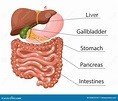Changing the Rhythm of Life: India’s First Heart Transplant
Heart Transplant
The function of the heart is to supply blood to the entire body. In other words, if our body is a machine, then the heart is the pump house. There is a myth that “if life is, the heart is beating.” But this is not entirely true. Dr. Christiaan Barnard wanted to challenge this notion. On 3rd December 1967, at Groote Schuur Hospital in Cape Town, South Africa, he performed the world’s first heart transplant. He took the heart from a person who was brain-dead and transplanted it into a patient whose heart had failed but whose brain was still alive. To everyone’s amazement, the new heart began pumping blood, and the patient lived for 18 days. This was nothing short of a medical revolution.
In India, the first successful heart transplant was carried out much later—on 3rd August 1994, by Dr. P. Venugopal at AIIMS, New Delhi. The long delay of nearly 27 years was not due to a lack of medical skill, but because Indian law did not permit organ retrieval from a brain-dead person. Only after the Transplantation of Human Organs Act (July 1994), passed under the Narsimha Rao government, did such life-saving procedures become possible.
The Donor and the Recipient – A Critical Match
For a heart transplant, both the donor (the person giving the heart) and the recipient (the patient receiving it) undergo strict medical checks.
- Donor Evaluation:
The donor must be confirmed brain-dead, usually from severe head injury or stroke, and the family must consent to organ donation. Doctors then check the heart’s strength through ECG, Echocardiography, and blood tests, and rule out infections like HIV, Hepatitis, or sepsis. Blood group compatibility is essential. - Recipient Evaluation:
The patient awaiting a new heart is usually in end-stage heart failure. They undergo tests like cardiac catheterization, ECHO, lung pressure assessment, and kidney/liver function tests. Importantly, blood group and HLA (tissue) matching is done, along with a crossmatch test to check if the recipient’s antibodies will attack the donor heart. Psychological readiness is also tested, as patients must commit to lifelong medication and follow-ups.
Even with all this, one of the biggest challenges remains organ rejection, where the body attacks the new heart, or infections, because the patient’s immunity is suppressed after surgery.
The Green Corridor – Beating the Clock
A donor heart remains viable for only 4–6 hours outside the body. To overcome this challenge, hospitals and police create what is known as a Green Corridor—a special traffic-free route to transport the organ quickly from one hospital to another. This coordination can make the difference between life and death.
The Bigger Challenge – Awareness
While medical science has advanced, the shortage of donors remains the greatest hurdle. Many people are unaware that one organ donor can save up to 8 lives. In India, awareness campaigns are growing, but cultural hesitations and lack of understanding still limit donations. Encouraging families to pledge organs can transform thousands of lives.
✨ A heart transplant is not just a medical procedure—it is a story of science, law, society, and above all, human compassion. From Dr. Barnard’s pioneering surgery in South Africa to Dr. Venugopal’s landmark achievement in India, every transplant continues to be a miracle of life made possible by awareness, timely action, and a generous donor.
Cost and Availability of Heart Transplants in India
Heart transplants are among the most complex and resource-intensive surgeries in modern medicine. In India, the cost of such a procedure typically ranges between ₹20–25 lakh (approximately USD 25,000–30,000), depending on the hospital, expertise of the surgical team, post-operative care, and the duration of recovery. Additional lifelong expenses are linked to immunosuppressant drugs, which a recipient must take to prevent organ rejection. These medicines can cost anywhere between ₹10,000–15,000 per month.
Currently, only a limited number of hospitals in India are equipped with the infrastructure and expertise to perform heart transplants. Leading centers include:
All India Institute of Medical Sciences (AIIMS), Delhi
Apollo Hospitals, Chennai & Hyderabad
Fortis Hospitals, Delhi & Bangalore
Narayana Health, Bangalore
Sri Jayadeva Institute of Cardiovascular Sciences, Bangalore
Wolverine’s Take:
A heart transplant is not just a medical achievement, it is a reflection of society’s compassion. India took almost 27 years after Dr. Christian Barnard’s pioneering effort to perform its first heart transplant—not because of lack of skill, but because of legal, ethical, and social barriers. Today, while the cost and availability remain limiting factors, the real challenge is awareness. Every potential donor carries the power to save multiple lives. Until we as a society embrace organ donation, no law, no corridor, no super-specialty hospital can bridge the gap between life and loss.

